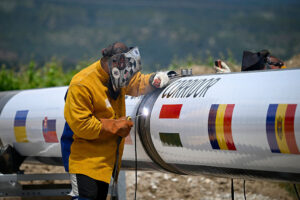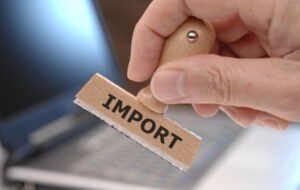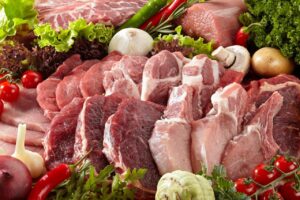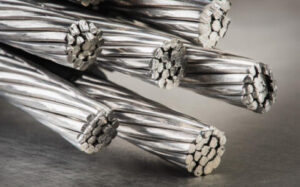
On June 23, a second auction will be held for gas supplies to Ukraine from Greece via the Trans-Balkan corridor after the first auction on May 29 failed to take place, the Ukrainian Ministry of Energy and the Ukrainian Gas Transmission System Operator said on Thursday.
As noted in particular by the Ministry of Energy, Deputy Minister Mykola Kolisnyk called on traders to actively participate in booking the product.
“At the end of 2024, the guaranteed capacity was set at 7 million cubic meters per day. The parties are now working to increase the guaranteed capacity to 11.5 million cubic meters per day by 2025,” the ministry said.
According to Kolesnik, having a joint product in the form of gas transportation from other countries, in particular from Greece, Bulgaria, and Romania to Ukraine using an economically advantageous tariff, it is possible to increase the capacity and tariff revenues of each of the participating countries, as well as ensure the supply of non-Russian resources to the EU.
“This is a way to integrate our existing infrastructure into the pan-European infrastructure on fairly competitive terms and with resources to cover the consumption of Central and Eastern Europe,” the deputy minister noted.
As emphasized by Vladislav Medvedev, acting director general of OGTSU, for Ukraine, the Trans-Balkan pipeline means access to new sources of gas: liquefied gas coming from all over the world to Greek and Turkish LNG terminals; Azerbaijani gas transported via the TAP gas pipeline; and Romanian and potentially Bulgarian offshore gas.
“Currently, together with the TSO operators of Greece, Bulgaria, Romania, and Moldova, we have introduced a joint package product for gas imports from Greece to Ukraine on competitive terms until October 2025. This product temporarily resolves the issue of high tariffs along the route,” he said.
According to Medvedev, the next step is to develop a long-term commercial solution to enable gas transportation along the entire route to Central European markets.
As reported, the first auction on May 29 for booking capacity for gas transportation from Greece to Ukraine along the Trans-Balkan route for June in the amount of 2.9 million cubic meters per day ended without any bids from participants.
Gas transmission system operators in Bulgaria, Greece, Moldova, Romania, and Ukraine have developed a scheme for supplying natural gas from Greece to Ukraine via the Trans-Balkan corridor. In particular, Bulgaria’s Bulgartransgaz EAD, Greece’s DESFA SA, Romania’s Transgaz SA, and Moldova’s VestMoldTransgaz SRL, together with Ukraine’s OGTSU, are jointly offering a route package product for natural gas supplies for the period from June to October 2025, which will facilitate gas transportation from Greece to Ukraine.
To increase the attractiveness of the route, the parties have agreed on a single gas transit tariff with a 25% discount. For the Ukrainian operator, the discount will be 46%.
The operators of the countries participating in the project will hold a single auction to allocate capacity at all points of the Trans-Balkan Corridor along the natural gas transportation route from Greece to Ukraine.
On the fourth Monday of each month, tenders will be held for the sale of capacity for the following calendar month. A single-price auction mechanism will be implemented for capacity allocation.
The proposed transport package can only be used for gas supplies to Ukraine. Previously, gas was not supplied to the country via the Trans-Balkan corridor.

Imports of goods to Ukraine in January-May 2025 reached $31.3 billion, which is 13.8% more than in the same period of 2024, but exports remained at the same level as in the same period last year, at $16.9 billion ($16.8 billion in 2024), according to the State Customs Service of Ukraine.
“Taxable imports amounted to $23.8 billion, accounting for 76% of total imports. The tax burden per 1 kg of taxable imports in January-May 2025 was $0.51/kg,” according to a publication on the agency’s Telegram channel on Friday.
The leaders among importing countries have remained unchanged for the last three months: China – $6.5 billion, Poland – $2.9 billion, and Germany – $2.6 billion.
For the second month in a row, the top three exporting countries are Poland ($2 billion), Turkey ($1.4 billion), and Italy ($1 billion).
In the total volume of goods imported in January-May 2025, 68% were machinery, equipment, and transport—$11.9 billion (with customs clearance of these goods, 75.6 billion UAH, or 29% of customs payments, were paid to the budget), chemical products – $5.2 billion (UAH 41 billion and 15%, respectively), and fuel and energy – $4 billion (UAH 72.6 billion and 27%).
The top three most exported goods from Ukraine traditionally included food products – $9.7 billion, metals and metal products – $1.9 billion, and machinery, equipment, and transport – $1.5 billion.
According to the State Customs Service, in the first five months of 2025, UAH 121.6 million was paid to the budget during customs clearance of exports subject to export duties.

In 2024, Ukraine exported 118,000 tons of dairy products, which is almost twice as much as imports, which reached 60,000 tons, according to the infographic “Dairy Map of Ukraine” for 2024, prepared by the Association of Milk Producers (AMP).
“Despite military losses, targeted shelling and destruction, a forced new wave of closures and relocations of farms from war-torn regions, exhausting blackouts and record heat in June-September 2024, which caused more than 50% of industrial farms to experience a significant drop in milk yields, the Ukrainian dairy industry has demonstrated significant achievements,” the industry association said.
As of January 1, 2025, the number of cows in the industrial sector increased by 1% compared to the previous period. The top five regions in terms of industrial livestock numbers, which together account for 51% of the total industrial cow population in Ukraine, are Poltava (52,700 head), Cherkasy (44,000 head), Chernihiv (35,400 head), Kyiv (34,000 head), and Vinnytsia (31,500 head).
At the same time, the largest increase in the industrial cow population last year was recorded in Mykolaiv (+14%), Ternopil (+10%), Khmelnytskyi (+5%), Cherkasy (+4%), and Kyiv (+3%) regions.
At the same time, there were losses, primarily in the frontline regions, in particular in Zaporizhzhia (-88%), Kharkiv (-47%), Sumy and Chernivtsi (-22%), as well as in Chernihiv (-11%).
According to the AVM, last year more than 90% of raw milk sent for processing was obtained from industrial farms. The leading regions in terms of production were Poltava (445.2 thousand tons), Cherkasy (371.5 thousand tons), Chernihiv (268.3 thousand tons), Kyiv (266.5 thousand tons), and Vinnytsia (260.2 thousand tons).
The largest increase in raw milk production over the year was recorded in the Mykolaiv (+18%), Ternopil (+13%), Khmelnytskyi (+9%), and Zhytomyr and Poltava (+8%) regions. In contrast, a significant decline in production was recorded in the Zaporizhzhia (-87%), Kharkiv (-45%), and Sumy (-6%) regions.
Despite blackouts and abnormal heat in June-September 2024, which led to a 25% reduction in milk yields in more than half of farms, industrial dairy farms (MTF) showed record productivity growth last year. In particular, the average milk yield in the industrial sector reached 8,167 kg/cow per year, which is almost 20% higher than in pre-war 2021.
Analysts noted five regions with the highest productivity of industrial cows in 2024, including: Ternopil (9,905 kg/cow per year), Mykolaiv (9,189 kg/cow per year), Khmelnytskyi (8,817 kg/cow per year), Poltava (8,447 kg/cow per year), and Cherkasy (8,443 kg/cow per year).
In addition, milk quality indicators have improved, with 55% of milk delivered for processing being extra grade and 25.3% being premium grade.
As for the average consumption of dairy products in Ukraine, analysts noted a 4% increase in 2024 to 209.3 kg/person compared to previous and pre-war years. Thus, despite the full-scale invasion, emigration, and reduced purchasing power, Ukrainians maintain stable demand for dairy products.
At the same time, exports of dairy products last year amounted to 118,020 tons, with cash proceeds of $296.81 million (+16% compared to 2023 and +20% compared to 2021).
The top five export categories included dry and condensed milk (25%), cheese (18%), butter (16%), casein (14%), and ice cream (14%).
Last year, 60.27 thousand tons of dairy products worth $290.34 million were delivered to Ukraine, with cheese accounting for 78% of imports. In monetary terms, the value of deliveries increased by 10% by 2023 but decreased by 24% by 2021.
Ukraine maintained a positive foreign trade balance in dairy products last year, exporting almost twice as much as it imported (118 thousand tons against 60 thousand tons), with almost the same value ($296.81 million in exports against $290.34 million in imports).
“This indicates the high added value of imported goods (mainly cheese) and a larger volume of exports (e.g., milk powder, butter, casein),” analysts concluded.

Albania is considering importing beef, lamb, and processed products from Ukraine, and also wants to increase exports of root vegetables to the Ukrainian market, according to the Ministry of Agrarian Policy and Food following a meeting between its head, Vitaliy Koval, and the Ambassador of the Republic of Albania to Ukraine, Ernal Fil.
The minister noted that in 2025, Ukraine shifted its state policy towards livestock farming and began to increase the production of cattle, red meat, and processed products, which attracted the interest of Albania, where demand for meat products has grown due to an increase in tourism.
“Albania is interested in importing meat (beef and lamb) and processed products from Ukraine. At the same time, they want to increase the supply of root vegetables to the Ukrainian market, especially in February-May, when we have less of our own. To do this, certain trade procedures between the countries need to be simplified,” Koval said.
The parties agreed at the ministerial level to discuss steps to strengthen cooperation in the agricultural sector at the embassies.
The head of the Ministry of Agrarian Policy emphasized that, in addition to cooperation in the agricultural sector, Ukraine and Albania have many points of contact. In particular, the agricultural sector accounts for a significant share of GDP in both countries and provides employment for a large number of people.
To intensify cooperation, Koval proposed holding the inaugural meeting of the Ukrainian-Albanian Joint Commission this year.

US President Donald Trump has announced that tariffs on steel imports to the US will be increased by 50%, which is twice the current rate, CNN reports.
“We are going to increase tariffs on steel in the United States by 25%, from 25% to 50%,” he said during a speech at a US Steel plant near Pittsburgh, Pennsylvania.
Trump added that he was considering a 40% tariff, but industry leaders told him they wanted a 50% tariff.
“At 25%, they can somehow get around this fence. At 50%, nobody will get around this fence,” the US president added.
He later wrote that tariffs on steel and aluminum would be increased to 50% starting Wednesday, June 4.
“I am honored to raise tariffs on steel and aluminum from 25% to 50% starting Wednesday, June 4. Our steel and aluminum industries are reborn like never before. This will be another big boost of great news for our great steel and aluminum workers. Let’s make America great again!” he wrote.
Earlier, the Experts Club analytical center released a global analysis of steel production by the world’s leading countries. For more details, follow the link: https://youtube.com/shorts/VgUU9MEMosE?si=EZIE-o9jE0w2O9Z_

In January-April 2025, nickel imports to Ukraine decreased by 40.9% to $5.01 million. Exports amounted to $374,000, compared to $217,000 in the same period of 2024. In April, imports amounted to $1.11 million, while exports amounted to $13,000.
Nickel is used in the production of stainless steel and for nickel plating. Nickel is also used in the production of batteries, in powder metallurgy, and in chemical reagents.
Imports, nickel